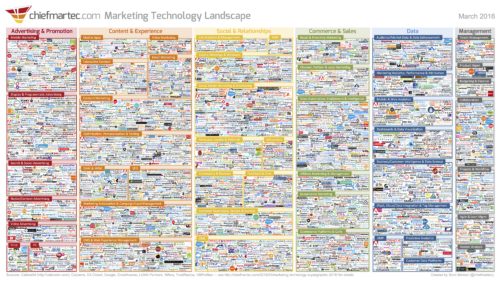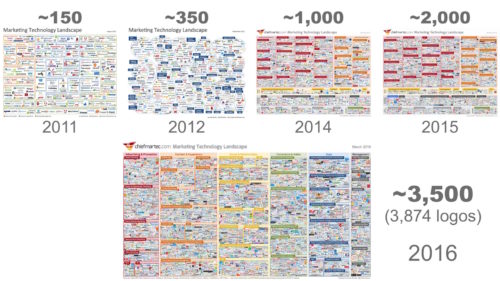Find out how to go into the CMS evaluation process with a clear understanding of what you need, based on your current marketing technologies, required features and existing technical capabilities.
Choosing the right content management system (CMS) for your success is as important as choosing the right partner, but it seems that with each passing day, the decision gets more and more complex.
Depending on your specific situation you may have internal politics to navigate, and balancing the disparate agendas and opinions within your organization can be no small task. Whether it’s an IT group eager to showcase their capabilities to the rest of the organization, the opinions of influential stakeholders in the C-suite, or even your very own board of directors, internal stakeholders can easily turn a decision quagmire into an outright minefield.
But even if stakeholder politics aren’t in play and the decision is truly yours to make, the right choice may still not be clear. There’s the rapidly evolving marketing technology landscape to contend with…one that seemingly changes daily. If you haven’t looked at it yet, take a moment to review Scott Brinker’s 2016 Martech Landscape Graphic.

Panic-inducing though it may be, it’s still one of the better maps to our world. And year over year, it’s clear that our world becomes more and more complex.

This comes as no surprise, really. Legislation, consumerism, consolidation, retailization…these are just a few of the tectonic shifts that are reshaping our world. SHSMD’s 2016 Bridging Worlds report describes some of these changes and issues a provocative challenge for us all:

“Given the evolving changes in the healthcare environment and our desire to enhance the value we bring to the enterprise, how might we, as strategy professionals, re-imagine our work?”
But what, if any, do all these changes mean for you and your CMS selection process?
Given all the stakeholder preferences and the remarkable changes in the world of marketing, it’s no surprise that choosing the next CMS remains as important of a decision as it is worrisome.
But it doesn’t have to be. The steps to selecting the right CMS start with assessing your current marketing technologies, your required features and your existing technical capabilities. Let’s explore!
Technology Assessment
One of the things we’ve learned in recent years is that marketing technologies can’t live in silos. Your systems need to talk with one another, and be able to pull, share, update and use the data contained in each. And this includes your CMS. Your customer relationship management (CRM), marketing automation (MA), credentialing systems, active directory infrastructure, secure communication systems, forms management and more are all either pulling data from your CMS, or are having data pulled from it.
These dependencies introduced by your other marketing technologies can quickly rule out some CMSs and identify others worth considering. If your CMS can’t talk to your credentialing system to keep your provider directory up to date, do you really want to use it? So put the time in to make sure your CMS will be a good fit for your existing environment.
But it’s not just about making sure your next CMS is a good fit for where you are today. Choosing the right CMS is also about choosing one that is a good fit for where you’re planning to be tomorrow. If you’re making significant changes to your marketing technology stack (and these days, who isn’t?), make sure you understand the scope and direction of these changes before making a decision on the ideal CMS for you. The ideal solution for tomorrow may be radically different than the right fit today, and if change is in the air, you need to factor it into your decision.
Features Assessment
Most organizations are able to specify with great detail the precise functionality they want their CMS to provide in a multitude of very specific areas. You make this investment in your RFPs precisely because the cost of choosing the wrong CMS is enormous.
So it’s not surprising that you need to evaluate the CMS features. But you’ll also need to think beyond the product and define the features you want from your vendor and partner. As CMS features become increasingly commoditized, this is increasingly the differentiator between marketing success and mediocrity.
The right vendor is someone who can clearly articulate not just how their recommended CMS will meet the requirements described in your RFP, but one who goes beyond to help you identify needs that you might not even be currently aware of. And more importantly, it’s one who will work with you on achieving your goals, even after the initial implementation is done.
While you may not always want to avail yourself to all of a vendor’s services, there’s a difference between one who wants to walk away as soon as their implementation work is done, and one who is invested in your continued success.
This type of partnership can be of enormous benefit to you. Remember, you may evaluate CMSs a few times a decade, but a top-notch vendor has worked with hundreds of organizations and will bring that experience and expertise to bear when helping you select, implement and succeed with the right CMS.
Skills Assessment
The right CMS for your organization will be a good fit for the technical expertise and skills fielded by the people who will maintain and use it. It may seem obvious to read this, but it’s something that’s often overlooked and easy to minimize when chasing the next generation functionality you want. Remember, all the cutting-edge features are meaningless if your team can’t use them or doesn’t want to. What’s worse, they’ll drain your capacity and throughput if they require such an investment that the work of the team shifts from marketing your organization to managing the CMS.
Some organizations need a CMS-as-a-service experience where their partner takes care of all the hosting, design changes, templating and integration required for the organization to execute on its vision. The marketing team can then focus on the work of marketing.
Other organizations really just want a development framework or platform on which they will build their website, and the work becomes a mix of software development and marketing.
And there are a range of options in between these extremes. Be honest with yourself over which experience will let you focus on the work that helps you move your organization forward, and go into the CMS selection process with a clear understanding of what you need, based on the skills and expertise of the teams who will be working with the system.
Finding the Right Fit
As I noted earlier, there are few things more important for your organization than choosing the right CMS for your needs. But today’s rapidly evolving marketing landscape makes this more challenging than ever. Success begins with an honest assessment of the features and functionality you need, the marketing technologies it will need to work with (today and tomorrow), and an honest assessment of the skills and expertise of the teams who will work in it. The right fit means finding an ideal match for these requirements, and identifying a partner that is as invested as you are in selecting the right system for your organization. Look for one who pushes you to identify new opportunities, helps you understand what’s working and where to improve, and one who understands the importance of being with you after the sale as well as during implementation.
If you’re interested in making sure your next CMS is the right fit for your organization, reach out and start a conversation.

